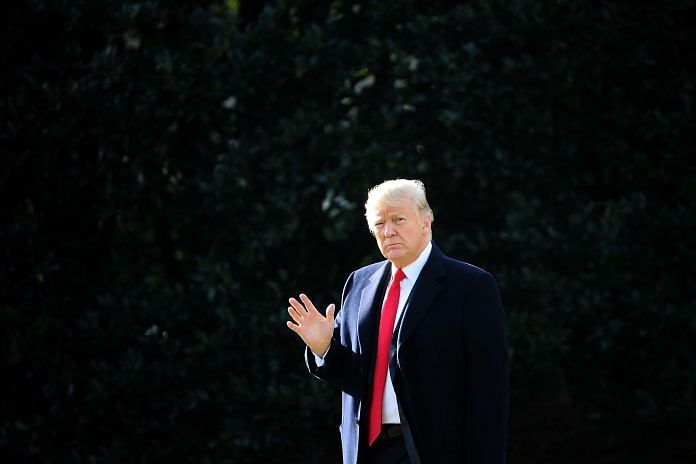Though it has come in for a lot of criticism, the new US NSS is the brainchild of two of the US’s top scholar-warriors, which gives confidence to many.
The latest US National Security Strategy (NSS) was made public earlier this week. It addresses many important questions about the US’s relationship with key foreign powers, and features many dimensions that this strategic commentator has analysed for ThePrint, based on his interaction with some of the brightest minds at institutions as diverse as The Harvard Kennedy School, Fletcher School of International Law and Diplomacy, and the Naval War College, among others.
On China, North Korea, and India
The NSS shows the US’s concern and alarm over China’s rise, and the need for collaborative partnerships to manage and calibrate this complex relationship. This writer had addressed the issue in depth in a November article.
There were many dilemmas facing the US over the likely trajectory of its North Korea policy that this writer flagged last week, including a critique of Trump’s strategy and his alienation of European allies.
These dilemmas have now changed to confusion, with dissonant strategies emerging from different sources within government. Many critics have blasted the lack of consensus within the Trump administration over future courses of action against North Korea in the face of Chinese inaction. However, it can be argued that this may be good in the long run, because of the complex nature of Kim Jong-un’s strategy of ‘rational brinkmanship’, the kinds of which the US has faced only once before: during the Cuban Missile crisis.
If there is one area of complete consensus between the Democrats and the Republicans, it is on the need to further strengthen the alliance with Japan, and the Strategic Partnership with India.
In an informal conversation with this commentator, the former Secretary of Defence in the Obama administration, Ashton Carter, remarked that the three world leaders he admired most in the ‘free world’ were Prime Minister Abe, Prime Minister Modi, and Chancellor Angela Merkel.
That the importance of India is not merely skin-deep is reflected not only in the NSS, but in public pronouncements. A number of high-ranking officials from the present and past administrations, including General Joseph Dunford, the Chairman Joint Chiefs of Staff, and Ambassador Nicholas Burns, a former top-ranking diplomat in the State Department.
Brainchild of scholar-warriors
The New York Times is scathing in its criticism of Trump’s National Security Strategy and calls it a farce and highlights the dissonance between various senior functionaries in the State Department and Department of Defence, particularly over North Korea and Iran. However, the very fact that the chief orchestrators of the NSS are two of America’s most cerebral scholar-warriors gives much confidence to many.
In Defence Secretary James Mattis, National Security Advisor H.R. McMaster and White House Chief of Staff, John Kelly, Trump has three generals who could well keep America on an even keel from a national security perspective. Their combined experience across conflict zones, coupled with their skills in statecraft that have emerged from years of scholarly pursuit, will serve the US well in these troubled times.
How they operationalise this strategy over the remaining period of this administration will be keenly watched by countries like China and Russia, which have already criticised the strategy for its overtly nationalistic ‘America First’ tone.
What NSS means for India
For India, this is a time to see whether the US is really serious about India’s concerns regarding the strengthening of the China-Pakistan collusivity, and whether it can finally draw on US concerns about global terrorism and not differentiate between ‘good and bad terrorists’ based on who attacks US citizens and soldiers and who does not.
This would also be a good time to discuss the tweaking of various technology regimes, so that a win-win situation can emerge for both US industry and the Make in India campaign, particularly in the defence sector.
The major takeaway for India is that it is widely seen in the US as a stable, responsible, and restrained power-in-the making, that needs to be cautiously nurtured as a partner based on shared values, ideals, and interests.
Air Vice Marshal Arjun Subramaniam (Retd) will continue his exclusive column for The Print in 2018 from Oxford University, where he will be a Visiting Fellow at The Changing Character of War Programme.




A great pleasure to get enlightened by the writings of dear Arjun. I am also military historian with only two books and am working on the third.
I would like to get in touch with the great writer of vision. kindly give your mob n mail I’D. on bhanotmadan@Gmail. com and oblige.